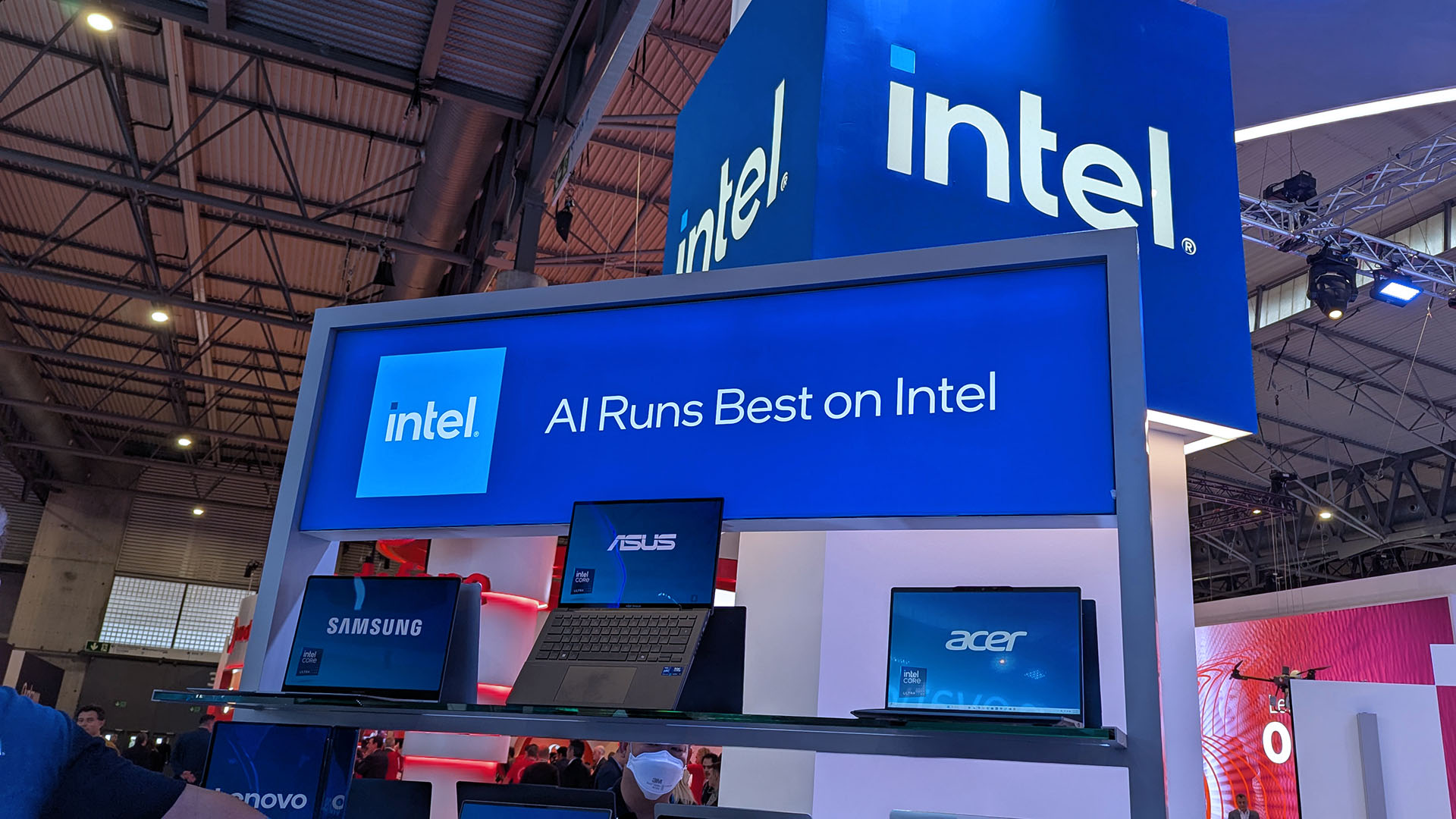PC game development surges in Steam Deck handheld era — But don't count Xbox and PlayStation out
The GDC survey also reveals more about layoffs, sheds light on which devs are using AI, and shows that Xbox is ahead of PlayStation in one key way.
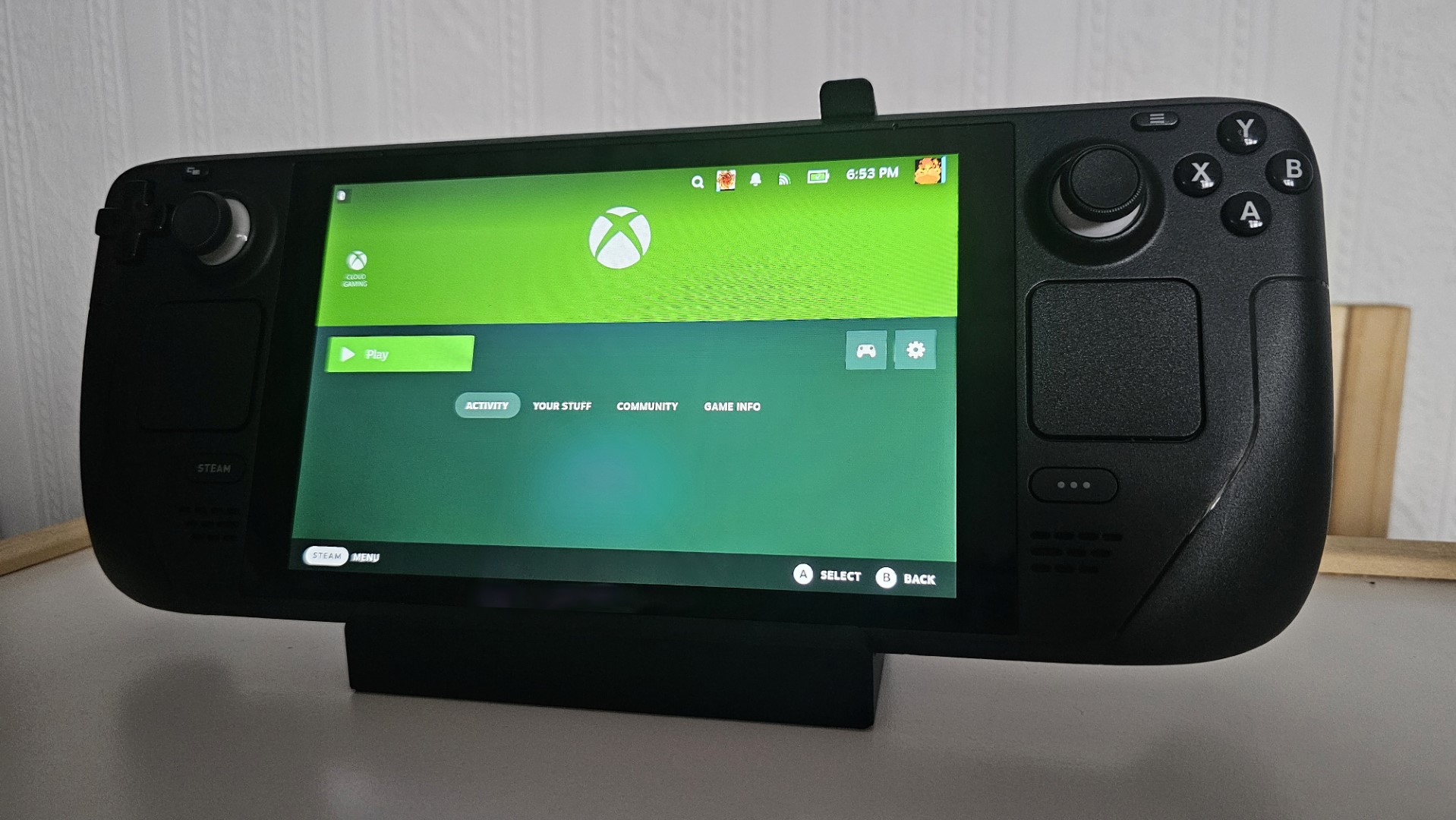
The GDC (Game Developers Conference) has released the results from its 13th annual State of the Game Industry Survey, capturing over 3,000 developer responses that reflect the impacts that layoffs, generative AI, and more have had on the industry over the last year. Respondents answers also give a sense for how developers feel toward live-service games and different platforms like Xbox.
While some of these results were as expected, others might allude to larger changes within the industry than you might expect.
Steam Deck has made PC an even greater platform of choice
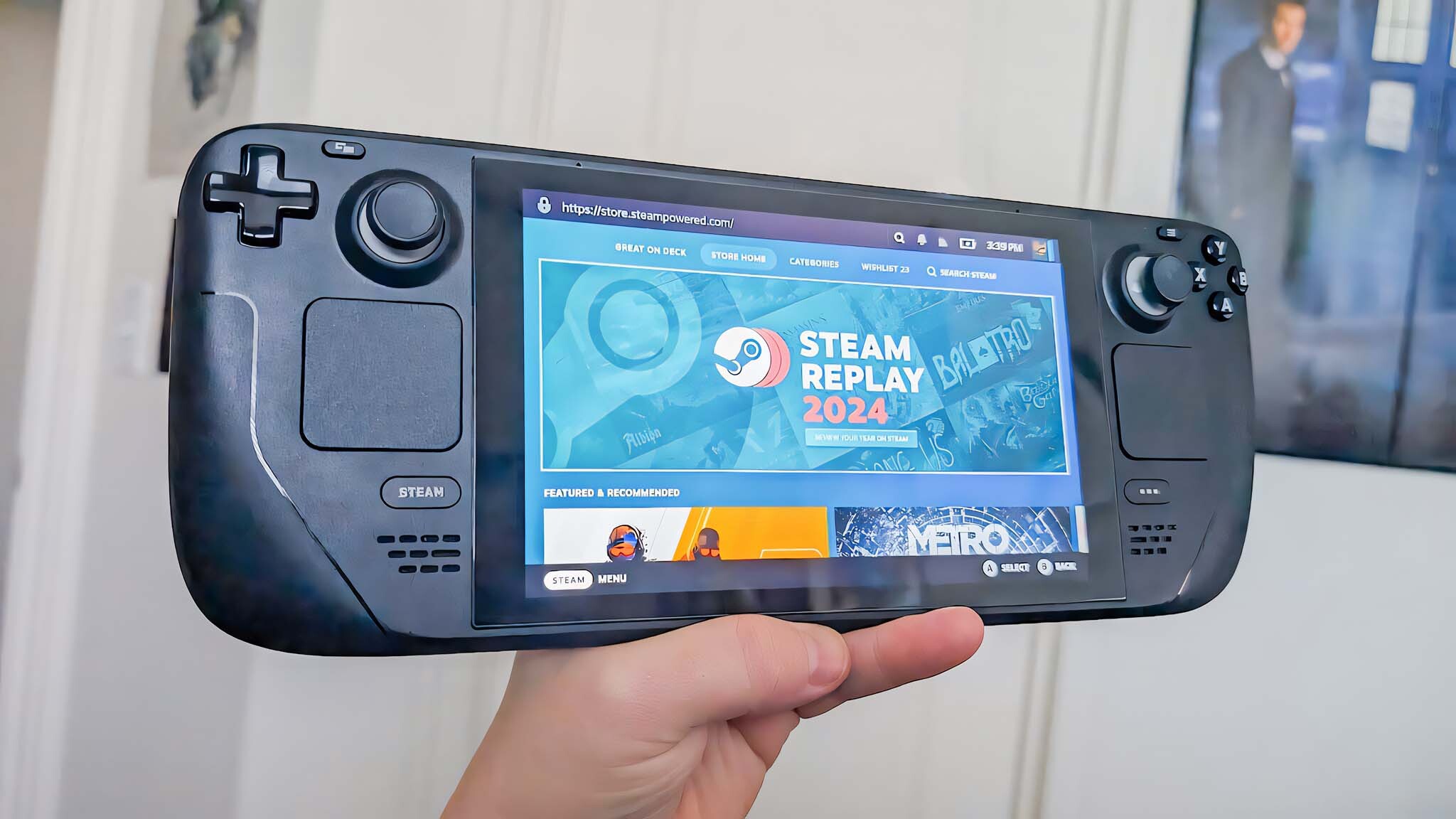
PC has long been the platform of choice that the largest number of developers plan to launch on. But, one of the most interesting bits of information from the survey revealed the impact that Steam Deck (and probably other gaming handhelds) has likely had on the industry.
In last year's survey, 66% of developers reported working on games for PC, while this year's number is significantly higher at 80%. In comparison, 38% of developers said they were working to put their game on PlayStation while 34% said they were developing for Xbox. Still, this doesn't count consoles out of the running (more on that later).
Now, GDC clarifies that "Steam Deck" was not specifically listed as a platform option in the survey. However, when answering which platforms they were developing for, 44% of respondents who chose "Other" did mention "the Steam Deck as a platform they’re interested in," which potentially shows a significant focus on Valve's handheld.
I know I personally have been using my Steam Deck and ROG Ally more than my consoles and gaming PCs this last year. As such, this finding seems right in line with the shifting focus in the gaming market. Honestly, what this all tells me is that gaming handhelds have become a very important aspect of the gaming experience. If Xbox and PlayStation want to stay relevant, they need to not only consider going handheld soon, but offer a fantastic experience to be worth coming into.
Xbox Game Pass gets more focus than PlayStation Plus does
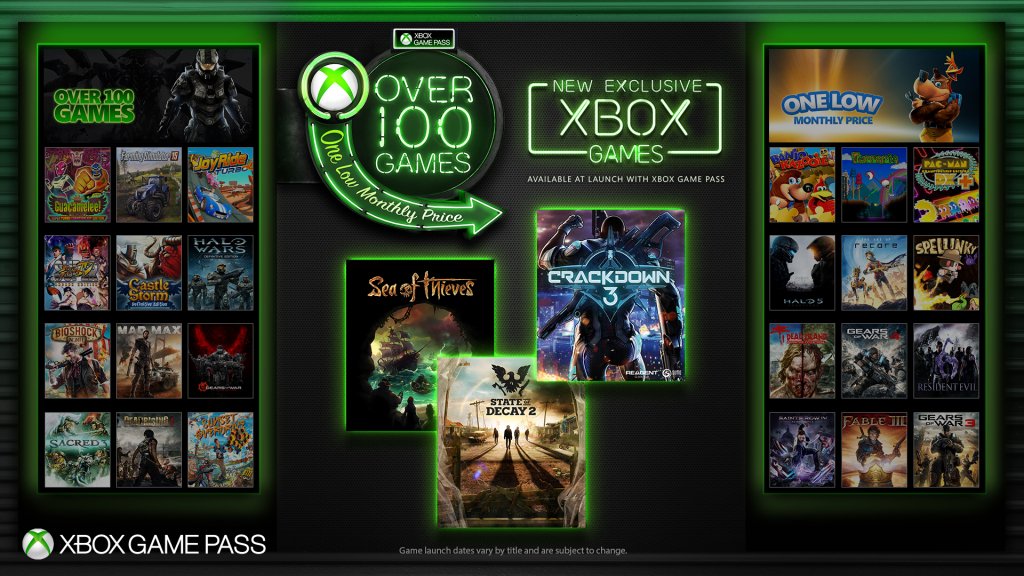
So we've talked about developer focus on PC and gaming handhelds, but consoles like Xbox and PlayStation aren't out of the game yet.
Get the Windows Central Newsletter
All the latest news, reviews, and guides for Windows and Xbox diehards.
As I previously stated, the survey found that 38% of developers were working on content for PlayStation while a smaller 34% were developing for Xbox. That's obviously a lot smaller than the 80% developing for PC, but not necessarily worrying for consoles. Something to remember here is that the majority of devs are indie developers rather than larger AAA studios. From an indie developer standpoint, it is safer to work on bringing their games to PC since it is such a wider audience. Then if a game is successful, solo devs and small studios might work on bringing their games to consoles.
On a different note, the survey also found that 13% of developers were "creating games with the aim to release them on Xbox Game Pass" while only 9% were doing so for PlayStation Plus. In other words, Sony's console might have a larger player base, but there's no denying that Xbox's gaming streaming service is more appealing than PlayStation's.
Recently, Microsoft has been doing its confusing "this is an Xbox" campaign, to help better promote Xbox Game Pass and other services on various devices. It might not be the most straightforward or helpful marketing tactic, but it also seems to reflect that the company is still trying new ways to bring attention to itself and expand its user base.
Developers are more wary about generative AI this year — especially younger ones
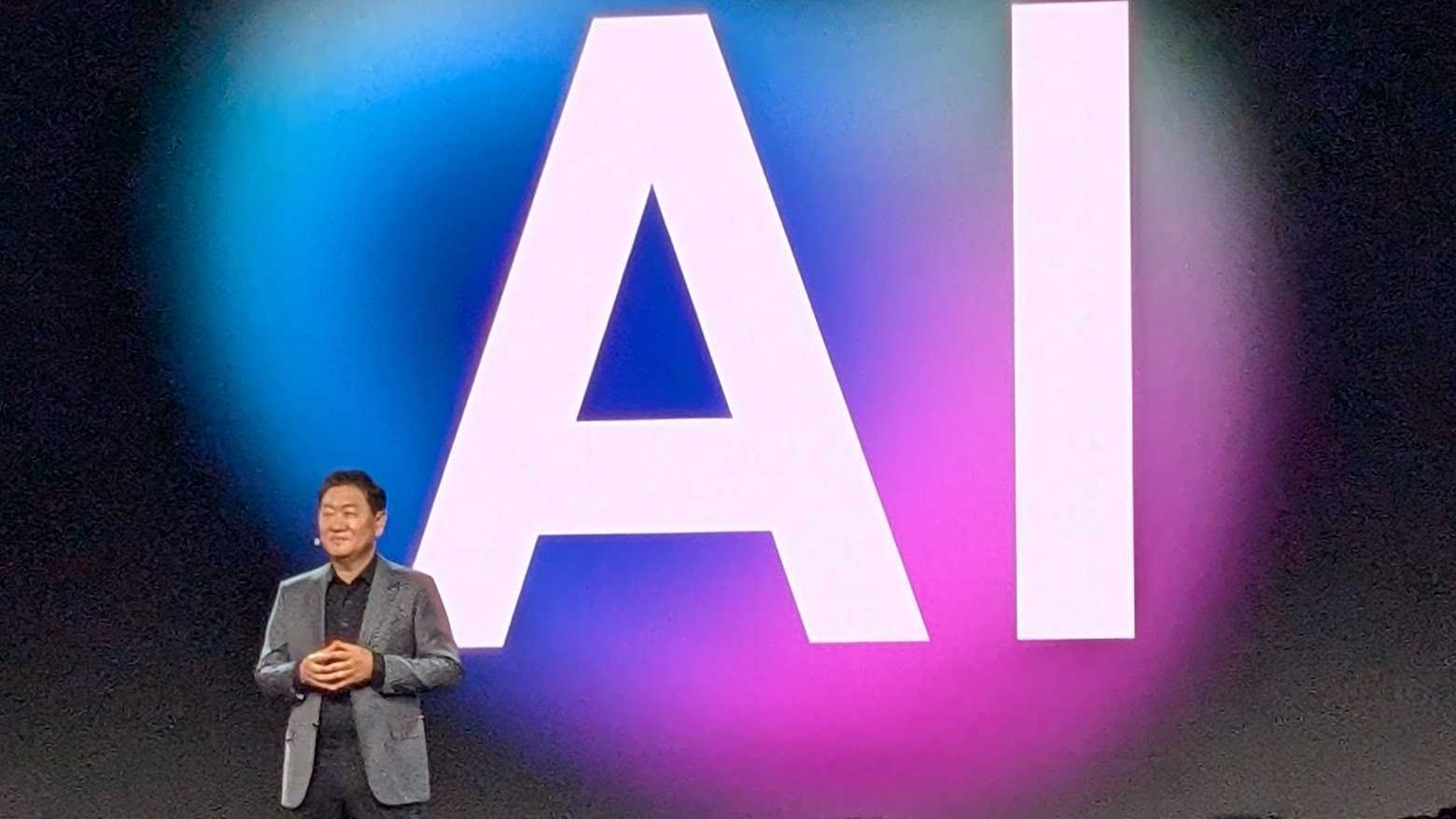
Generative AI (artificial intelligence) is often billed as a tool that can assist with coding, create concept art, complete more repetitive tasks, and more. It's been adopted into many different industries over the last couple of years. However, it seems that developers are growing less curious and more wary of it as time goes on.
According to the GDC survey, 30% of responding developers "believe that generative AI is having a negative impact on the games industry," which is 12% higher than what was reported last year. Meanwhile, 52% of respondents stated that they work for companies that use generative AI, but with only 36% stating that they personally utilize it.
Older developers are more likely to use generative AI than younger ones.
But survey results provide an interesting look into who is actually using AI at developer companies, and it might not be who you think. Respondents within Finance and Business reported the highest usage of AI, with 51% replying that they did use artificial intelligence tools. Next, 41% of Team Leadership and Production reported using it. Following that, 39% of PR, Marketing, and Community reported using AI. You'll note that creative and visual art roles aren't mentioned in these survey results at all.
Interestingly enough, the survey found that "older developers are more likely to use generative AI than younger ones." It's unclear why this is the case, but my guess is that it might have something to do with the kinds of roles older individuals tend to hold within a company versus the one younger people do.
As wary as developers are toward AI this year, it's likely that this will continue to be a hot topic that evolves in the next several years.
One in 10 game developers has been laid off in the past year and it's had an affect
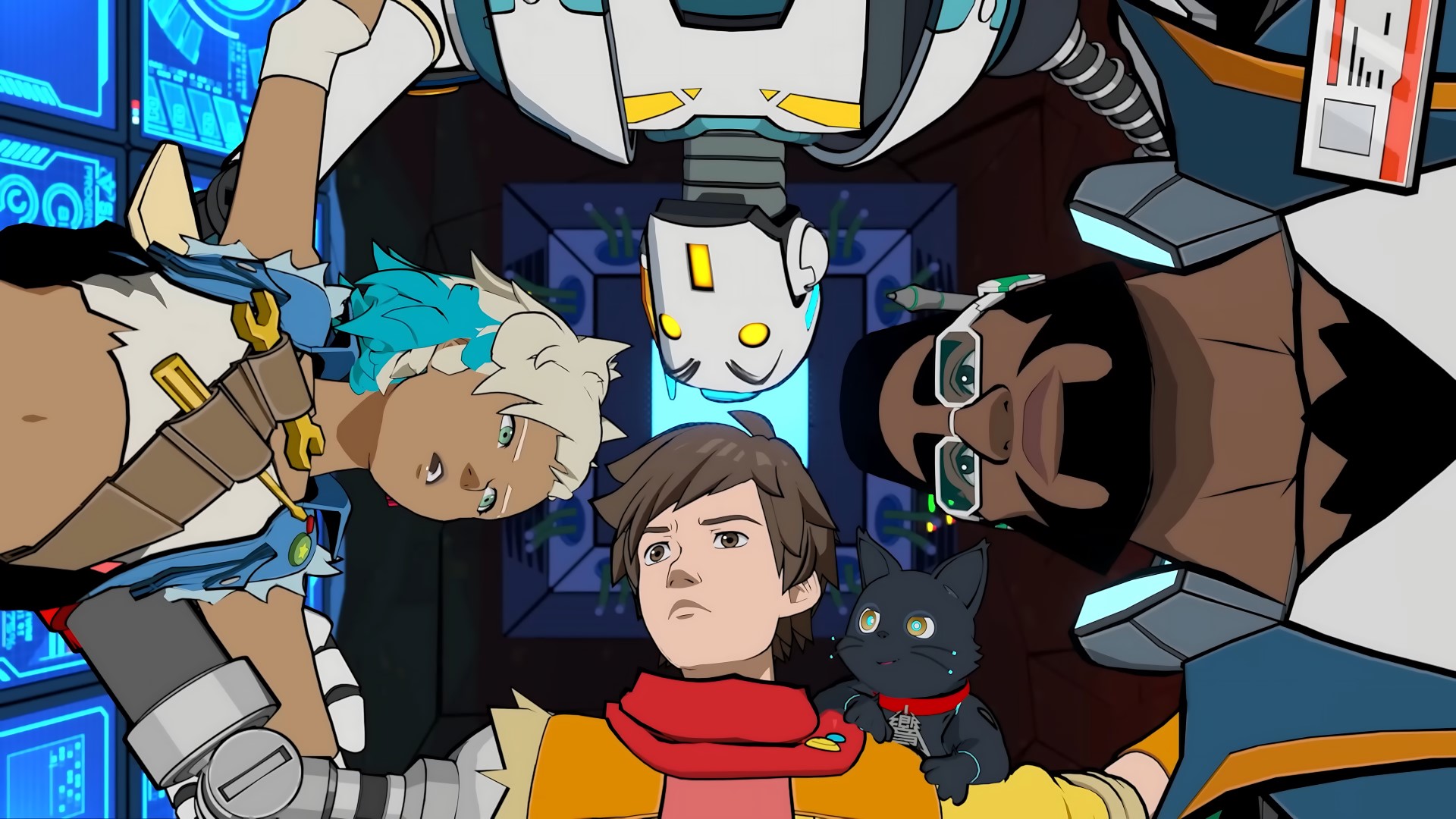
There have been so many gaming industry layoffs over the past few years that it can be hard to keep up. Even studios with well-received titles such as Tango Gameworks (Hi-Fi Rush) are not immune. Thankfully, this studio was acquired and rebranded to Tango Gameworks Inc., but that's not always the case with shuttered studios.
According to the GDC survey's findings, one in 10 game developers was laid off in the past year. When asked "how have layoffs impacted you or your company?" 43% of GDC survey respondents stated there were no layoffs while 29% reported that colleagues were laid off, and 4% reported that they themselves were laid off.
The survey also asked "how concerned are you about future layoffs?" to which 30% reported not at all concerned, 24% reported slightly concerned, 18% reported very concerned, 16% reported somewhat concerned, and 12% reported other / NA. I personally was surprised to find that fewer developers were worried about their own job security in light of others getting let go.
Covid-era overexpansion, rising production costs, declining player interest, unrealistic expectations for the “next big hit,” and poor leadership and mismanagement were frequently listed when asked why they thought increased layoffs were happening.
Seeing which roles have gotten laid off the most is rather telling. Based on survey responses, people with highest reported layoffs were in Narrative roles (19%). After that, both Production & Team Management as well as Visual Arts reported the same amount of layoffs (16%). Next was Programming/Engineering at 12%, Game Design (9%), and then Business & Finance (6%). It seems the actual creative and management-focused roles are the least stable.
This all begs the question, why are gaming companies still laying people off? Whether or not it's the actual reason, 22% of respondents reported that their companies sighted "Restructuring," 18% pointed to "Declining Revenue," and 15% were told that layoffs were due to "Market Shifts / Industry Trends." However, 19% of respondents stated that companies didn't give any reason for their layoffs.
In what I find to be a more interesting angle, the survey also asked respondents to give their own reasons why they think increased layoffs were happening. Many of the most common responses involved "Covid-era overexpansion, rising production costs, declining player interest, unrealistic expectations for the 'next big hit,' and poor leadership and mismanagement."
These all seem very plausible. However, there's no one-size-fits-all answer when talking about layoffs happening at different companies. More than anything, these responses all seem to talk about a shift going on in the industry.
A whopping third of developers are working on live service games,
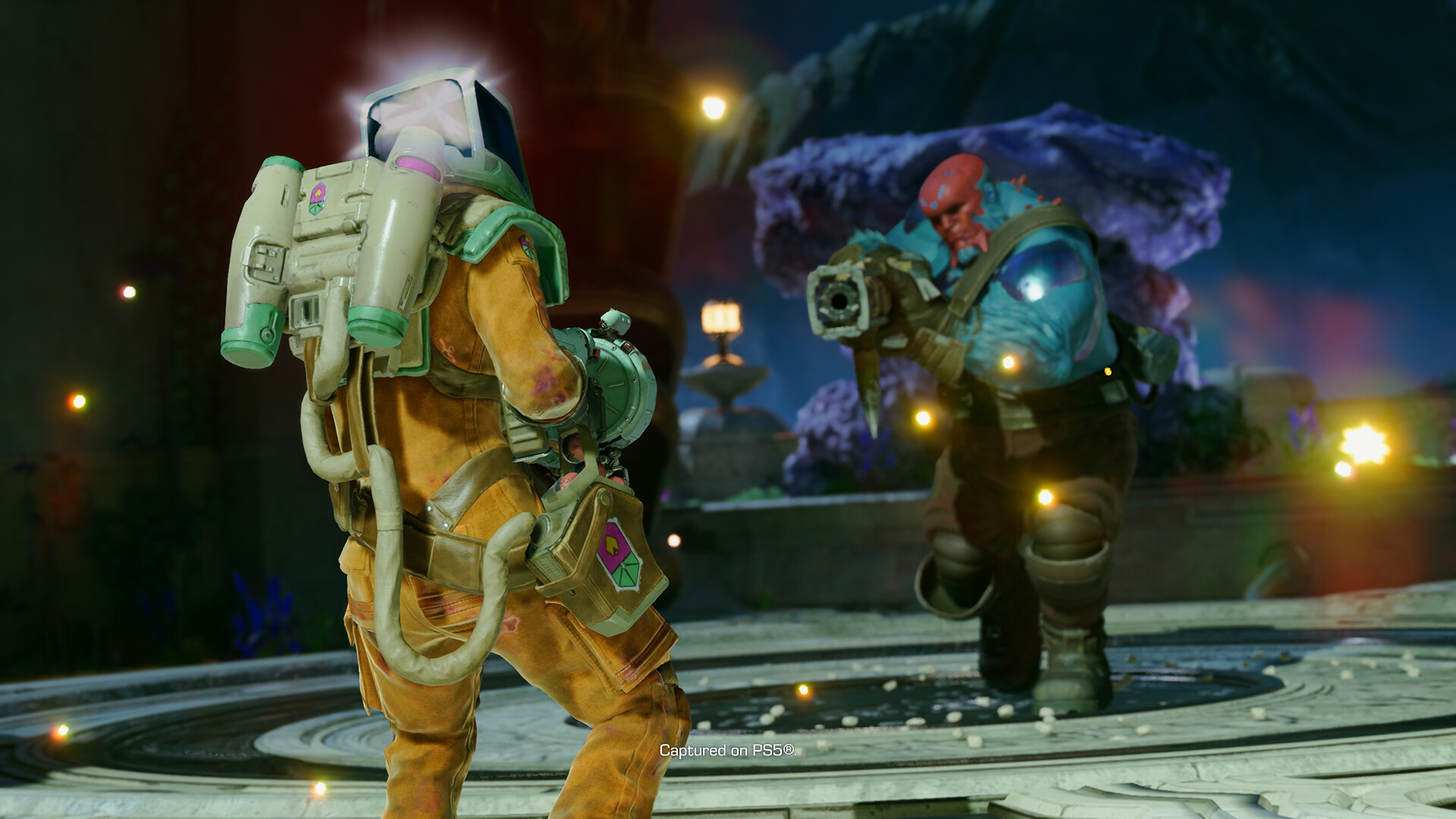
Wildly popular live service games like Fortnite, Call of Duty Black Ops 6, Destiny 2, Genshin Impact, League of Legends, and more have not only kept players coming back with interesting new content but have also allowed some developers to continue to earn copious amounts of money long after a game's initial launch — a dream cash cow result.
Of course, not every live service game that releases ends up being a hit, as we saw somewhat recently with the low player numbers and then consequent shuttering of Sony's Concord. Just last week, we also heard that PlayStation reportedly canceled two other live service games including a God of War title. The market is already highly saturated and breaking into it is no easy feat.
33% of AAA developers currently work on live-service games.
I expected GDC survey results to show that developers found live service games as a more risky or negative venture to make, but the actual responses were rather split. 13% of respondents said they would like to work on a live-service game while 42% said they were not interested and 29% said they didn't know one way or another. It also turns out that 33% of AAA developers currently work on live-service games, which is a rather large number.
On one hand, launching a new live-service game is rather risky. However, if the game is successful, it can lead to better job stability, and a strong player community. That said, respondents did say that some concerns they have with live-service games include predatory practices, microtransactions, and risk of burnout (among other things). We've definitely seen some shady practices with these areas in the past.
A time of turbulence and change

With layoffs, generative AI, and shifting platform focus being some of the key talking points of this year's GDC State of the Industry Survey, it's clear that we're currently in a time of change, sometimes wrought about in a rather rocky manner. It seems we can't go a couple months without news of more game developer layoffs. Changing player interests, poor management planning, shifting technologies, category oversaturation, and more can create a volatile space that can affect job security.
Then of course, generative AI is a bit of a curse word for some people, and it seems that developers are more wary of it than they were before. However, that hasn't kept older developers or people within certain roles from using it. We'll likely see this area continue to shift over the next couple of years as AI technologies and services themselves continue to evolve.
Meanwhile, the Steam Deck seems to be influencing more developers to create games for PC. That said, Xbox and PlayStation are still viable, they just need to rethink or refine their strategies.
Of course, GDC regularly brings up these kinds of hard-hitting topics at its annual five-day event. Allowing developers to get together, address their issues, and learn from one another is one way to help the industry. It's likely we'll see many of these topics talked more about during the GDC event in March.
GDC is around the corner, taking place at the Moscone Center in San Francisco from March 17 through March 21, 2025. Registration is currently open for those interested in attending.

Self-professed gaming geek Rebecca Spear is one of Windows Central's editors and reviewers with a focus on gaming handhelds, mini PCs, PC gaming, and laptops. When she isn't checking out the latest games on Xbox Game Pass, PC, ROG Ally, or Steam Deck; she can be found digital drawing with a Wacom tablet. She's written thousands of articles with everything from editorials, reviews, previews, features, previews, and hardware reviews over the last few years. If you need information about anything gaming-related, her articles can help you out. She also loves testing game accessories and any new tech on the market. You can follow her @rrspear on X (formerly Twitter).
-
fjtorres5591 Younger developers being more worried about generative software tracks.Reply
First of all, there is the narrative that the software will lead to layoffs; well, most companies doing staff horizontal staff reductions go by LIFO-last in, firxt out.
Second, the software is most safely used for non-mission critical grunt work..which is typically entry level duty.
Third older employees tend to have a track record and connections they can count on to minimize their risk. Unless the record isn't great, in which case it isn't the software that is displacing them.
Finally, there is the matter of the big layoffs on the narrative side. I'm not going there but it also tracks with ongoing issues associated with game underperformance.
All I can say is a lot of younger employees in all industries seem unaware of the classic mantra of the business world: "Do nothing that might embarrass the boss."
Not every thought that comes to mind needs to go on social media. -
Lurking_Lurker_Lurks Interesting results. They paint a very different picture than gamers and game journalists echo from with their more "outsiders looking in" perspective.Reply
To add too about studio closures, the mention of Tango Game Works implies they were shutdown. Ultimately Microsoft announced their intent to do so, but before the studio closed found a buyer in the form of another publisher. There was also an interview shortly before where they spoke about always exploring this option. I say this to add another reason of speculation for why so many studio closures: simple logistics. Tango Game Works was Microsoft's only studio in the far east. It was also Zenimax's (Bethesda Game Studios) only studio in the far east. It has always made managing it and collaboration between other owned studios difficult. Only Microsoft can say how much of an impact on their decision this was, but if they wanted to just shut it down they could have. Also not a shutdown, but there's the case of Toys4Bob going independent.
Despite comments online, Xbox has the most third party game support it has ever had this generation. They still need to do a lot of work with big name publishers that had traditionally skipped Xbox, butt hey are really managing to invite in new developers, indies, and some of those companies that traditionally skipped them. Despite the negative push back for game pass from some vocal sources online, it isn't surprising that it is a little more preferred than plus. What is surprising is how low both are. I can only assume that refers to day one launch consideration, and not launching on either service further down the line after release. For Xbox I think if they can really entice developers to their Xbox launcher on PC and make development between console, cloud, and PC as seamless as possible than they'll really future proof themselves.
This also shows that on the developer side, as well as the consumer side, gaming is growing more on PC than console. Consoles certainly aren't out of the game (they'll likely always be important to the industry), but they need to acknowledge and address more that they aren't getting any more important in the industry. Be that some time of push to bring new gamers to console platforms instead of keeping the market mostly stagnant or a multiplatform strategy to not rely on console sales too much. I do hope that the growth of PC gaming and even cloud will hopefully bring an influx of new gamers. That's what we really need for a healthy industry as gamers become increasingly stuck on live service titles and game development becomes increasingly more expensive. More gamers will offer better opportunities in the industry to spread costs and take chances with different types of games. An extreme example, but I saw somewhere that South of Midnight has low interest, and I can imagine because the very audience it is celebrating and telling a story about has traditionally not been represented in gaming or marketed to much at all. Getting into gaming for the first time can be a little more daunting than people realize with consoles themselves not really managing to appeal to new gamers. If handheld PCs help bring in first time gamers that'd be amazing. -
fjtorres5591 Reply
One thing ignored about tech industry layoffs is that some staff reductions are performance based. It's not often publicly acknowledged that many companies routinely rate employee performance on a yearly basis and when it's time to reduce staff the first to go are the lowest rated. MS one such round this year. SpaceX cut the lowest 10% back in 2019. More often they cut without explaining to allow the ones cut loose a better chance to land elsewhere. But if the company's PR is at risk they'll say it openly.Lurking_Lurker_Lurks said:Interesting results. They paint a very different picture than gamers and game journalists echo from with their more "outsiders looking in" perspective.
To add too about studio closures, the mention of Tango Game Works implies they were shutdown. Ultimately Microsoft announced their intent to do so, but before the studio closed found a buyer in the form of another publisher. There was also an interview shortly before where they spoke about always exploring this option. I say this to add another reason of speculation for why so many studio closures: simple logistics. Tango Game Works was Microsoft's only studio in the far east. It was also Zenimax's (Bethesda Game Studios) only studio in the far east. It has always made managing it and collaboration between other owned studios difficult. Only Microsoft can say how much of an impact on their decision this was, but if they wanted to just shut it down they could have. Also not a shutdown, but there's the case of Toys4Bob going independent.
Despite comments online, Xbox has the most third party game support it has ever had this generation. They still need to do a lot of work with big name publishers that had traditionally skipped Xbox, butt hey are really managing to invite in new developers, indies, and some of those companies that traditionally skipped them. Despite the negative push back for game pass from some vocal sources online, it isn't surprising that it is a little more preferred than plus. What is surprising is how low both are. I can only assume that refers to day one launch consideration, and not launching on either service further down the line after release. For Xbox I think if they can really entice developers to their Xbox launcher on PC and make development between console, cloud, and PC as seamless as possible than they'll really future proof themselves.
This also shows that on the developer side, as well as the consumer side, gaming is growing more on PC than console. Consoles certainly aren't out of the game (they'll likely always be important to the industry), but they need to acknowledge and address more that they aren't getting any more important in the industry. Be that some time of push to bring new gamers to console platforms instead of keeping the market mostly stagnant or a multiplatform strategy to not rely on console sales too much. I do hope that the growth of PC gaming and even cloud will hopefully bring an influx of new gamers. That's what we really need for a healthy industry as gamers become increasingly stuck on live service titles and game development becomes increasingly more expensive. More gamers will offer better opportunities in the industry to spread costs and take chances with different types of games. An extreme example, but I saw somewhere that South of Midnight has low interest, and I can imagine because the very audience it is celebrating and telling a story about has traditionally not been represented in gaming or marketed to much at all. Getting into gaming for the first time can be a little more daunting than people realize with consoles themselves not really managing to appeal to new gamers. If handheld PCs help bring in first time gamers that'd be amazing.
And sometimes entire units are cut when their output is unsatisfactory.
Much is made about TOYS FOR BOB and TANGO GAME WORKS even when they weren't technically fired, but there was also the Project Odyssey team at Blizzard that was totally scrapped after 5 years of working on a game without getting anywhere and proposing to restart from scratch.
The other reason cited in the survey was corporate reorganization and not only do companies reorg often, but mergers are a guaranteed harbinger of layoffs. XBOX is still digesting its big acquisitions but doing it slowly. The various units (Bethesda, King, Blizzard, Activision, XGS and their component studios are currently allowed a large degree of autonomy by all reports but if their output falls short or growth stalls, consolidation and redundancies will follow.
Corporate cultures vary but all businesses have the same underlying mandate; make as much money as possible or else. And they all judge by cold equations.
As pointed out here elsewhere today, Sony is rapidly approaching the border of "or-else". Heads have already rolled and more are at risk.
These are not good times, no matter how politicians might try to spin things. -
Lurking_Lurker_Lurks Reply
On the aquistions one thing that made for a good pass time was watching both fans and critics implode as Xbox didn't immediately absorb two massive publishers without a single loss of staff. Xbox itself has undoubtedly taken advantage of an industry that's downsizing to overall grow massively, but the industry itself is still downsizing. Consolidation isn't 1 + 1 = 2; it's more like 1 + 1 - (redundancies + bleeding costs) = <2. Companies don't sell if they think they can keep growing infinitely or even stay the same size, and any aquistion will result in growing pains. We'll probably keep seeing Xbox just absorbing these major gaming publishers for the next 10 odd years especially with how long game development is.fjtorres5591 said:The other reason cited in the survey was corporate reorganization and not only do companies reorg often, but mergers are a guaranteed harbinger of layoffs. XBOX is still digesting its big acquisitions but doing it slowly. The various units (Bethesda, King, Blizzard, Activision, XGS and their component studios are currently allowed a large degree of autonomy by all reports but if their output falls short or growth stalls, consolidation and redundancies will follow.
